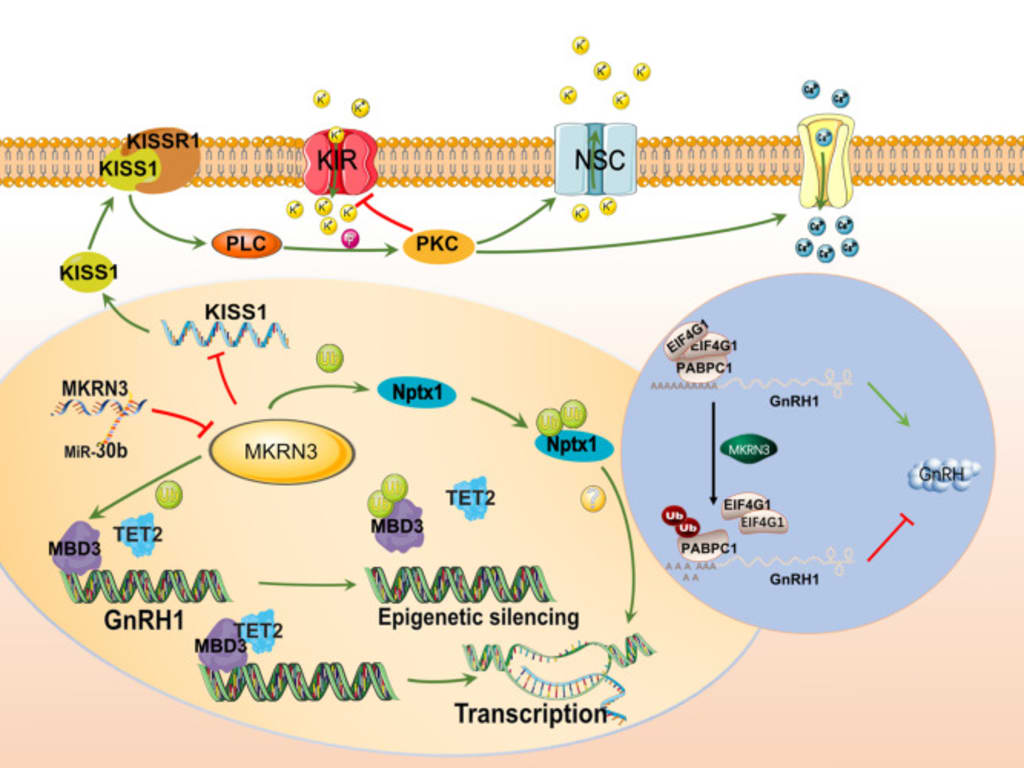Renal and Cardiac Function Studies Using Kisspeptin-10
Kisspeptin-10

Regarding reproduction, studies suggest that Kisspeptin may be responsible for controlling the release of hormones. It has been hypothesized to affect testosterone levels and behaviors connected to reproductive function, such as arousal and motivation. As suggested by research, it may also help counteract certain age-associated declines in hormone production.
What Exactly is the Kisspeptin-10 Peptide?
Kisspeptin, or Metastin, is a protein found naturally in the organism and may play significant functions in transmitting hormone signals. Additionally, it is believed to affect mood and behavior, stimulate angiogenesis, and control renal function. In addition to being discovered in the brain, the peptide is purported to inhibit the development of tumors and their ability to metastasize (spread). The peptide's potential to affect gonadotropin-releasing hormone (GnRH) is the primary reason for the scientific community's fascination with it.
Kisspeptin-10 Peptide, Renal, and Cardiac Function
The growing perception of the importance of Kisspeptin in reproduction and regulating reproductive hormones has received increased attention. Studies suggest that Kisspeptin may also play a key role in the kidney, which was a bit of a surprise. Kisspeptin and its receptor are believed to play a role in signaling renal function. Both of these proteins may be located in several sites throughout the kidney. Although the precise nature of this activity, whether direct or indirect, has yet to be understood, research on mice missing the Kiss1 receptor suggests that the peptide may be vital in guaranteeing glomerular growth throughout development. However, this research also purports that the peptide may be important in ensuring glomerular development during development.
Even while the precise function of Kisspeptin in the kidney is not fully known, data suggests that it may be connected to the protein's greater involvement in directing the growth of blood vessels and their reaction to damage. Research suggests that Kisspeptin may play a significant function in particular vascular beds. Still, no others are working to modulate vasoconstriction and cardiac output in certain conditions, as suggested by research involving cardiovascular illness in mice. It seems that Kisspeptin's potential impact on angiogenesis and vascular function may be connected to the possible impact of Kisspeptin in both the kidneys and the cardiovascular system. This characteristic may also explain Kisspeptin's perceived potential in preventing cancer metastasizing and spreading. Understanding how Kisspeptin operates in blood vessels is a necessary step in expanding the applicability of this peptide in other research avenues.
Kisspeptin-10 Peptide and Mood
Reproduction and mood are related in the same way as reproductive capacity and energy state are interconnected. Researchers were curious about how the peptide might affect mood and behaviors due to Kisspeptin's possible function in maintaining energy balance and reproduction. They gave Kisspeptin and a placebo to 29 male research models to examine the link between the two. Kisspeptin presentation appeared to increase activity in the brain's limbic region in test subjects. The research models, in particular, seemed to exhibit greater reward-seeking behavior, higher desire, and an overall improvement in mood. It suggested that Kisspeptin may have a function in integrating the sexual and emotional processing that takes place in the brain with the overall process of reproduction. These results contribute to a better understanding of mood, motivation, and drive, not just about sexual activity but behavior.
Kisspeptin-10 Peptide and Memory
It would seem that specific Kisspeptin analogs may play a crucial role in the regions of the brain that are involved in consolidating memories and orienting in three-dimensional space. Research conducted on mice suggests that the presentation of these peptides may assist to counteract the learning and navigational impairment often associated with ethanol intoxication. Because of this, researchers speculate that Kisspeptin and its analogs may likely have a role in the capacity of neurons to encode information, which may make these peptides of potential importance in balancing learning deficiencies found in specific hereditary and chronic illness circumstances.
Conclusion
A peptide known as Kisspeptin-10 is hypothesized to regulate hormone secretion in the reproductive system. This regulation occurs predominantly in the brain but not solely there. There is a significant amount of interest in learning how Kisspeptin may regulate sex-related characteristics such as drive and motivation in addition to testosterone levels.
It has also been speculated for a considerable amount of time that Kisspeptin may influence the progression and spread of malignant cells. However, the studies have produced somewhat conflicting results, which has caused interest in using Kisspeptin as an agent in chemotherapy research to wax and wane at various points. Research suggests that the peptide's activity in the development and operation of blood vessels may be related to its potential to impact the metastasis process.
References
[i] W. S. Dhillo et al., “Kisspeptin-54 stimulates the hypothalamic-pituitary gonadal axis in human males,” J. Clin. Endocrinol. Metab., vol. 90, no. 12, pp. 6609–6615, Dec. 2005, doi: 10.1210/jc.2005-1468
[ii] J. T. George et al., “Kisspeptin-10 is a potent stimulator of LH and increases pulse frequency in men,” J. Clin. Endocrinol. Metab., vol. 96, no. 8, pp. E1228-1236, Aug. 2011, doi: 10.1210/jc.2011-0089
[iii] E. Gibula-Tarlowska and J. H. Kotlinska, “Kissorphin improves spatial memory and cognitive flexibility impairment induced by ethanol treatment in the Barnes maze task in rats,” Behav. Pharmacol., vol. 31, no. 2 & 3, pp. 272–282, Apr. 2020, doi: 10.1097/FBP.0000000000000557.
[iv] A. N. Comninos et al., “Kisspeptin modulates sexual and emotional brain processing in humans,” J. Clin. Invest., vol. 127, no. 2, pp. 709–719, doi: 10.1172/JCI89519.
[v] M. Bhattacharya and A. V. Babwah, “Kisspeptin: Beyond the Brain,” Endocrinology, vol. 156, no. 4, pp. 1218–1227, Apr. 2015, doi: 10.1210/en.2014-1915.





Comments
There are no comments for this story
Be the first to respond and start the conversation.